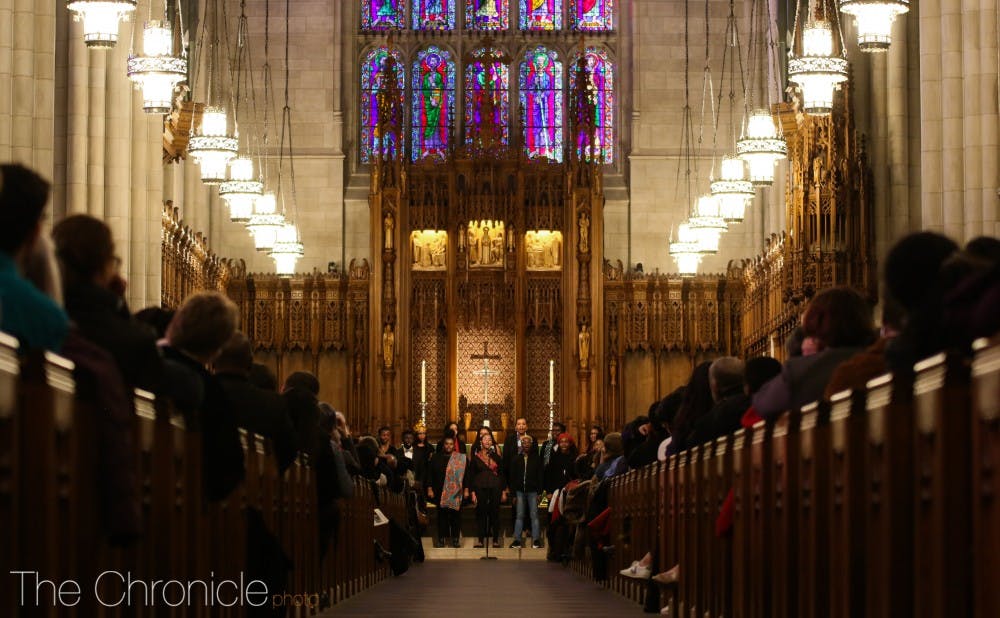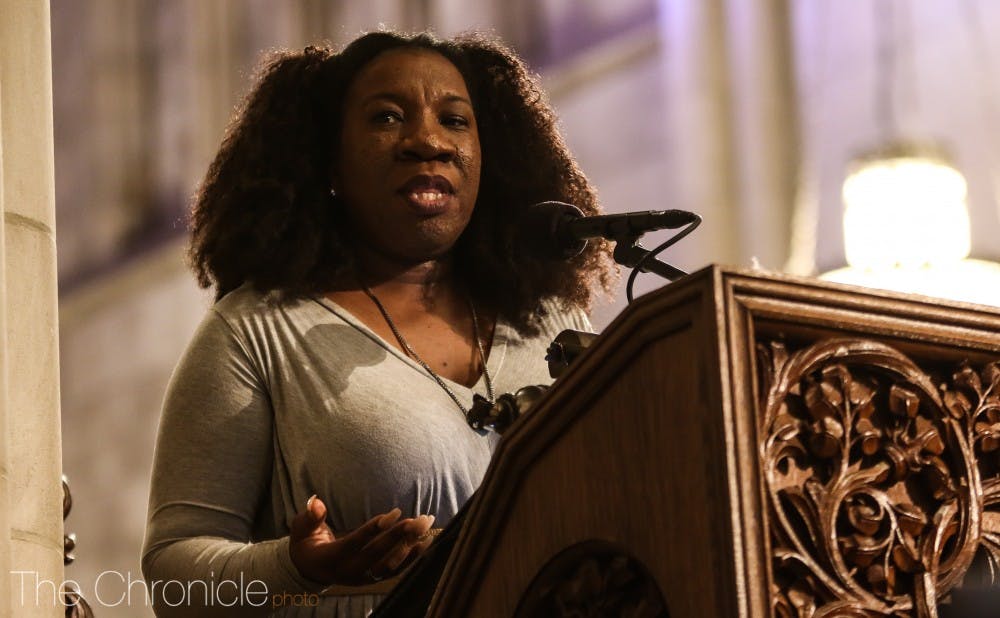To the civil rights activist Tarana Burke, 2018 was not just the 50th anniversary of Martin Luther King Jr.’s death.
It was also the year when the Me Too movement that she helped found “spread like wildfire.”
Sunday afternoon, in a packed Duke Chapel, speakers from the Duke and national communities discussed modern civil rights activism at the University’s annual Martin Luther King Jr. commemoration, titled “Why Words Matter: From Dissent to Dialogue." Amid singing, dancing and jazz, the speakers spoke about the legacy of King's civil rights work today.
Burke, who founded the Me Too movement against sexual harassment and assault in 2006, was the keynote speaker. In 2017, Burke was named Time Magazine’s Person of the Year along with other women who had spearheaded the movement that gained national attention recently.
During the talk, Burke discussed how she reflects frequently on the year of 2018, as the last of the “50th anniversaries”—such as King’s assassination and the signing of the Fair Housing Act, which is regarded as the culmination of the civil rights movement. But to Burke, 2018 was not the end.
“I immediately made a connection that this movement that I started in Selma was a part of a continuum of [the civil rights] movement,” Burke said. “It felt very connected to me, this 50th anniversary.”
Burke talked about the role of women in the civil rights movement and their connection to King.
She said that the figures of the civil rights movement who typically come to mind are charismatic male leaders. According to Burke, although King was an actor of the patriarchal system that kept women from standing by his side, he would not have been able to accomplish his goals without black women, who had selected him to lead the national movement.
“He answered the call, but often the call was made by black women,” Burke said.
She also described the implications of how today’s world, focused on instant gratification, often creates movements that lack an expansive vision and fizzle out. To Burke, movements are incremental—built over time, strategic and thoughtful.
“But mostly they are grounded in a belief of human capacity for change,” Burke said. “We have to believe in something that seems impossible to others that is actually possible.”
A year after Me Too gained national fame, Burke said some people now want the movement to end, asking when “we are going to go back to normal.” But, according to Burke, the discomfort a movement creates should not stop its momentum.
“We will win, because love always wins,” Burke said.
In addition to Burke, President Vincent Price, Durham Mayor Steve Schewel and Thomas Owens, president of Duke University Hospital, gave speeches. Junior Ashleigh Smith, vice president of Black Student Alliance, also spoke at the event.
Price asked the audience to reflect on how King’s example can inform them about their own roles. He also noted the educational ties to King’s commitment to freedom and justice for all, telling the audience to “take stock of our continuing progress and setbacks on the road to equality."
“What can our University do to deliver a future that is more equitable and just than the present?” Price asked.

Get The Chronicle straight to your inbox
Signup for our weekly newsletter. Cancel at any time.

Stefanie Pousoulides is The Chronicle's Investigations Editor. A senior from Akron, Ohio, Stefanie is double majoring in political science and international comparative studies and serves as a Senior Editor of The Muse Magazine, Duke's feminist magazine. She is also a former co-Editor-in-Chief of The Muse Magazine and a former reporting intern at PolitiFact in Washington, D.C.

